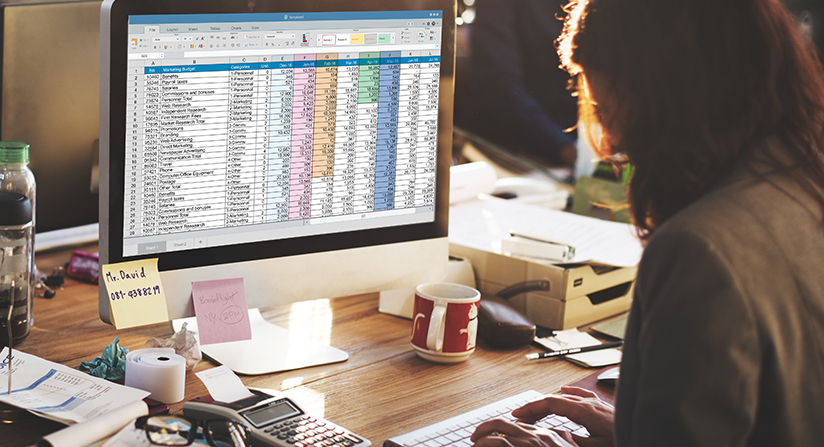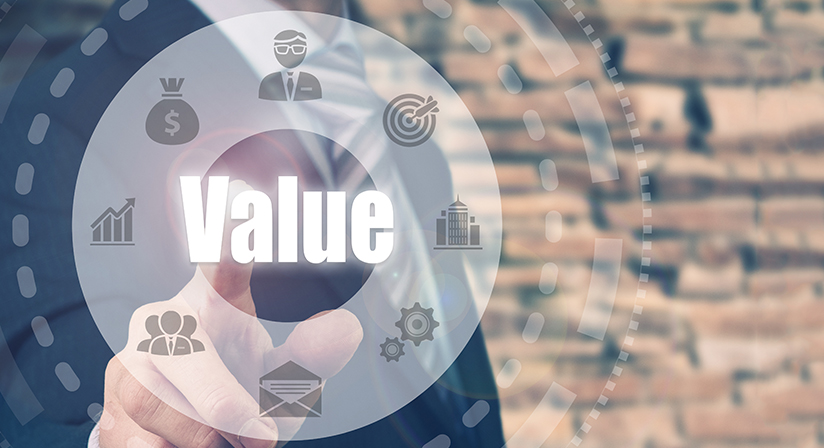I know you’re already accustomed to using your favorite accounting software that stores your company’s financial data. But the problem most manufacturers face is that this software is limited to providing accounting solutions alone and in no way aid in streamlining your other everyday business processes.
You need to replace your basic accounting software with an integrated ERP solution and save your business from the counterattack of lost sales and dissatisfied customers! Why do manufacturers need more than accounting software? A leading study reveals that ERP offers company-wide benefits that range from operational, strategic, and organizational advantages. This promotes improvement in supply chain management promoting profits, reduction in costs, and standardize processes.
ERP systems integrate entire business data, and not just financial entries, to let you have better visibility from everyday operations.
Manufacturers need a single ERP system to simplify business processes without having to rely on multiple systems. Below are the top reasons why you need to use an ERP for accounting:
1. 360-degree View of Your Financials and Overall Business
Manufacturers always want to economize resources and for this purpose, they use ERP accounting software to predict behavior and gauge patterns of everyday business processes affecting sales, marketing, and supply chain management.
ERP system for accounting gives a 360-degree overview of financial functions with reports displayed via. charts, graphs, and visual support. These financial reports assist businesses to forecast future outcomes and manage risks better.
2. Streamline Business Processes
Low-quality financial records can harm the company. When making decisions about business investments, accuracy in the financial reports is mandatory. An ERP system establishes standardized procedures to achieve real-time financial reporting and efficient delivery of financial information.
Financial accounting through ERP is thought to be more precise, as it is exclusively based on standard information accredited in the system. You don’t have to manually transfer data between platforms while using an integrated ERP. Most manufacturing businesses automate accountancy-related tasks like auditing compliance and reconciliation with ERP.
3. The Linkage Between Financials and Manufacturing Processes
ERP streamlines the collaboration process by providing access to the interdepartmental database. The information of numerous functional areas like CRM, Accounting, HR, and Supply Chain Management is funneled into one centralized location allowing real-time collaboration.
- Manufacturing business processes are more complicated and therefore many manufacturers rely on ERP systems to deal with a larger volume of data.
- ERP software for accounting is more accurate because it gives a holistic, integrated, and transparent view of business processes and is solely based on standard information available in the system.
4. Automated Workflows
- You can track financial transactions like automated audit info in real-time.
- You no longer need paper documents and can also make timely payments and improve accuracy.
- ERP reduces the time it takes for accounting procedures and it automates financial reports.
- The automated reporting gives top management comparable and detailed financial material, essential for decision making.
These benefits drive businesses to invest in ERP software to improve productivity.
5. Cost Savings
ERP systems integrate delivery planning and management tools, communication features, and order processing options in one platform. With the use of ERP, a business can reduce operating costs and save labor costs, because of business process automation.
Did you know that ERP users have saved 10 to 15% of their operating costs and 30% of labor costs? Logistics is one of the primary operations in a manufacturing business. It is a challenging task as you must consider every detail such as monitoring drivers’ schedules and even the capacity of each vehicle.
ERP software is created specifically for logistics and integrates delivery planning, order processing options, and communication and management features into one platform. It also enables you to maintain a customer database, making it easier to look up ongoing and completed deliveries.
Conclusion
ERP allows you to gain better visibility and control of operations resulting in substantial cost savings. The primary benefits for manufacturing businesses using ERP systems are a centralized database, real-time visibility of everyday work processes, and a more streamlined business. If you intend to invest in ERP accounting software or manufacturing ERP, feel free to contact us and we can share more insights. You may also request a free demo anytime!
Follow Us









